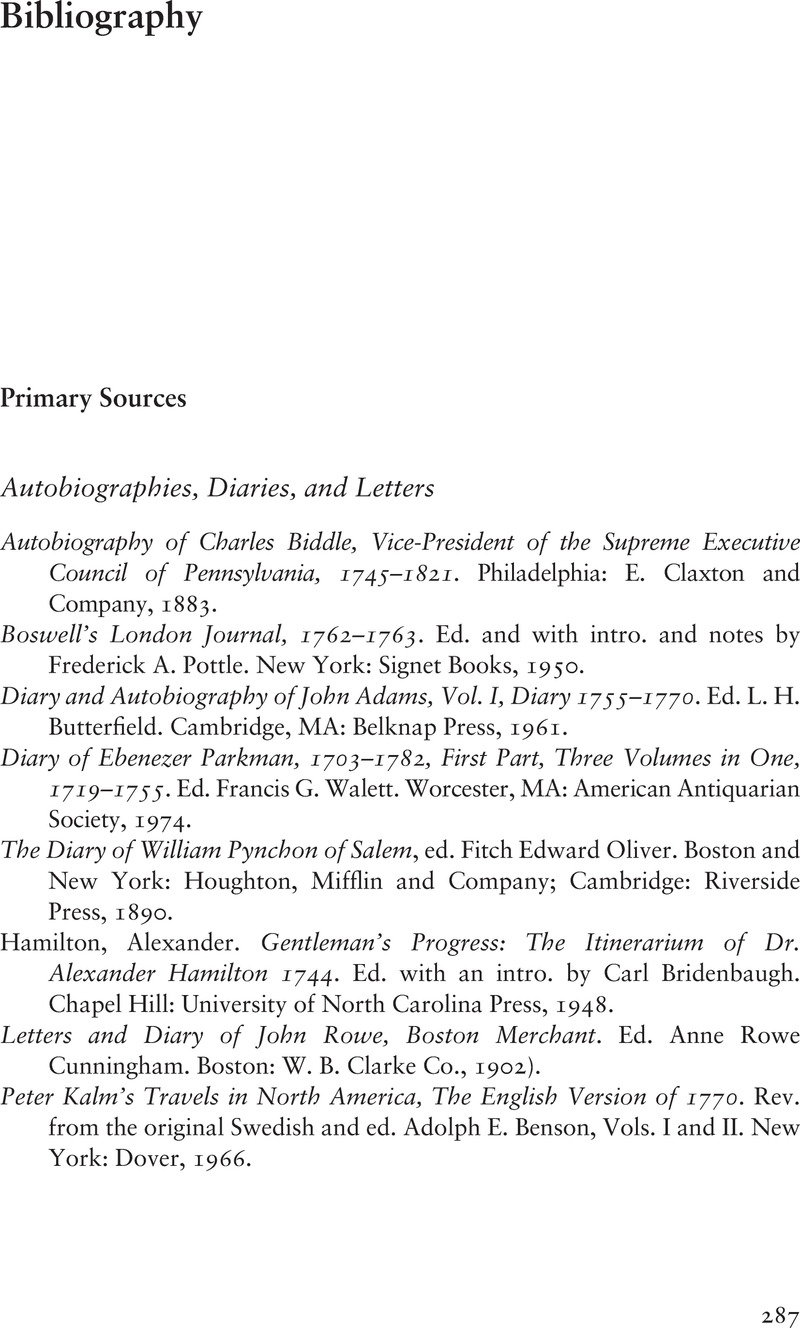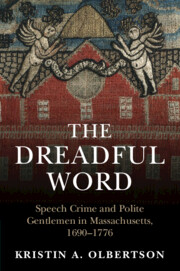Bibliography
Published online by Cambridge University Press: 03 March 2022
Summary

- Type
- Chapter
- Information
- The Dreadful WordSpeech Crime and Polite Gentlemen in Massachusetts, 1690–1776, pp. 287 - 310Publisher: Cambridge University PressPrint publication year: 2022

